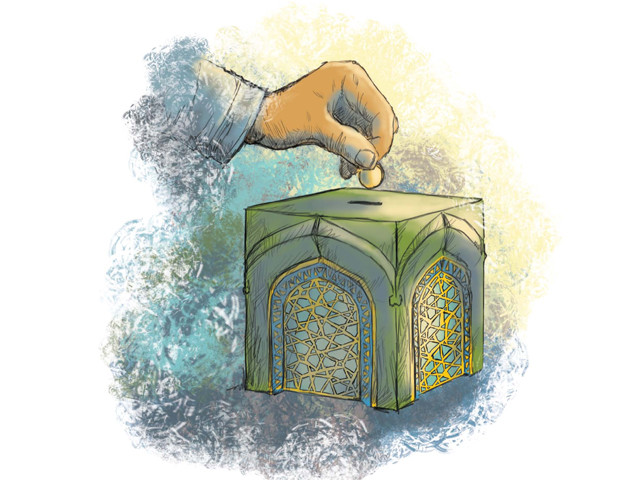Analysis: As Islamic finance grows beyond niche, banks seek mainstream clientele
While many new lending clients are agnostic to Shariah-compliances, most depositors still care about it.

As the industry grows out of its niche status, Islamic banks are increasingly targeting a clientele that is agnostic to their Shariah-compliant credentials.
Islamic finance in Pakistan has grown at a remarkably rapid clip, with the industry’s deposits growing at an average annual rate of close 65%, compared to just over 14% for the banking sector as a whole. As of June 2011, the latest month for which figures are available, Islamic banking deposits amount to Rs433 billion, or about 7.9% of total deposits in Pakistan. The branch networks of Islamic banks have also grown rapidly. There are now 726 dedicated Islamic banking branches across the country, about one-third of which are operated by conventional banks.
In short, Islamic banks - and the Islamic banking departments of conventional banks - are positively swimming in liquidity. Not a bad problem to have if you are a banker, but this is resulting in a rather interesting challenge for the sector.
The Islamic banking industry is finding it increasingly tougher to deploy their swelling deposit base into loans to high-quality borrowers who are also Shariah-conscious. And so Islamic banks are increasingly looking to market themselves to their corporate clients not as niche players, but rather as full-service banks that just happen to be Shariah-compliant.
“We are trying to go after large, high quality corporate clients who may not have Shariah-compliance as one of their requirements,” says Zubair Haider Sheikh, the head of corporate banking at Meezan Bank, the largest standalone Islamic bank in the country.
This leads to an interesting dichotomy: on the retail side, banks are aggressively marketing themselves as Islamic. Burj Bank, for instance, launched a highly aggressive media campaign that had “Shariat mein barkat” (Blessings in Shariah) as its tagline. As this strategy is paying off for them: Burj’s deposits rose by 67% in 2011.
Yet when it comes to the corporate side, banks are going after the same clients as the conventional banks. There was a time when this may not have been possible, since the Shariah-compliant counterparts of many key banking products did not exist. But since the advent of things like Islamic working capital finance and other products, Islamic banks can effectively compete with their conventional counterparts - and are doing so with relish.
“Effectively, our competition is the middle-tier banks: Standard Chartered, Bank AL Habib, Habib Metropolitan, etc,” says Sheikh.
This approach, though an immensely profitable one for the Islamic banking sector, is not without risks. Banks risk brand dilution and confusion, especially if their corporate communications and advertising for retail and corporate customers start to overlap. It is unlikely, for instance, that the Islamic banks’ Shariah-heavy taglines will be particularly appealing to multinational clients, for instance. Meanwhile, marketing themselves as a full-service bank while de-emphasising the Shariah-compliant aspect may alienate some of their deposit base.
It is a fine balance that the Islamic banking sector will have to strike, but for the most part, they seem to be doing it rather well. The industry is helped by the fact that while most retail advertising is at branches and through advertising campaigns in the media, most sales to corporate clients take place through personal meetings with corporate or commercial bankers.
This, in turn, means that recruiting high-quality talent will become ever more important for Islamic banks.
Islamic banking may have its critics, but there is no denying the fact that the industry is no longer a backwater of the overall financial services sector that it was once thought of as. And given its stricter risk controls, bank managers seem to like having Shariah-compliance as part of their offerings.
Published in The Express Tribune, May 8th, 2012.



















COMMENTS
Comments are moderated and generally will be posted if they are on-topic and not abusive.
For more information, please see our Comments FAQ